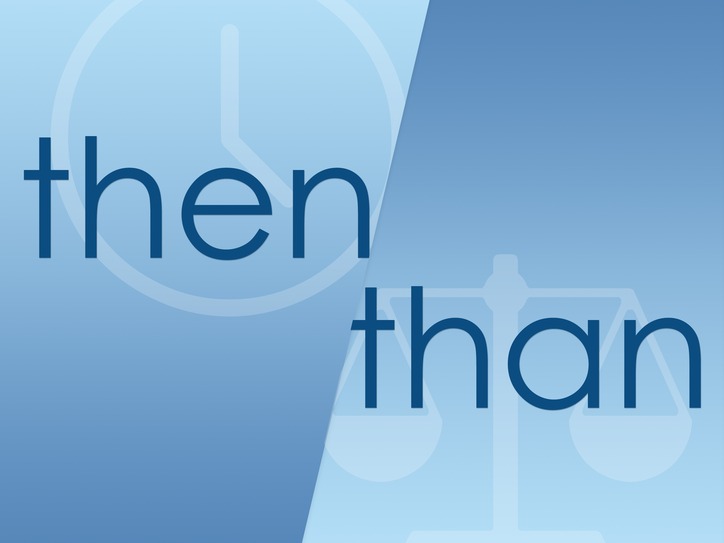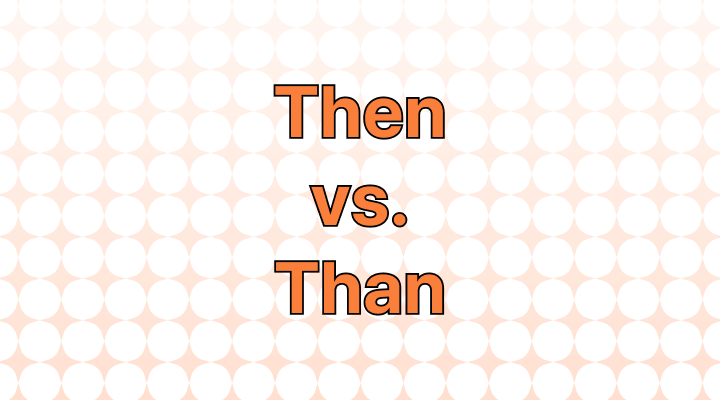Then finds its usage in contexts like describing a sequence of events or indicating a consequence. Than, on the other hand, is used in comparisons and also in phrases expressing preference.
At first glance, then and than might appear interchangeable due to their auditory resemblance. However, their similarities mostly end there. Both words are adverbs and are used to provide additional context in sentences.
What are the differences between than and then?
The crucial difference lies in their meanings and usage. "Then" primarily functions as an adverb of time, indicating a specific point in time or sequence of events. It often answers the question of "when." On the other hand, "than" is a conjunction used to establish comparisons between things or ideas. It is frequently employed when making choices or indicating differences in quantity, quality, or degree.
What does than mean?
Than is used as a conjunction for comparative reasons.
Example sentence
I am better than him at football.
More example sentences:
- She'd rather spend time outdoors than stay indoors all day.
- This restaurant has more vegetarian options than the one we went to last week.
- James is taller than Lily by a few inches.
- I'd rather go swimming than sit on the couch all day.
What does then mean?
Then is used when a situation calls for timing or sequences.
Example sentence
She has to finish her homework, only then can we go to the movies.
More example sentences:
- I'll finish my work, and then we can head out for dinner.
- If you're hungry, eat something now; if not, then wait until later.
- Back then, technology wasn't as advanced as it is now.
- If you can't find your keys, then check on the kitchen counter.
Practice sentences
- I finished my homework, and then/than I watched my favorite TV show.
- Sarah is much more artistic than/then her brother.
- If you want to catch the bus, you should leave the house earlier than/then usual.
- First, we'll go to the park, and then/then we'll have a picnic.
- Learning a new language can be challenging, but it's also more rewarding than/then you might think.
- He's always been more interested in sports than/then academics.
- If you want dessert, you'll need to finish your vegetables first, and then/than you can have a treat.
- Back then/than, people had to rely on written letters to communicate over long distances.
- Running a marathon requires more stamina and endurance than/then running a 5k race.
- I'd rather go hiking in the mountains than/then lying on the beach all day.
- Emma finished her book report earlier than/then her classmates.
- If you're done with your chores, then/than you can go out with your friends.
- James is taller than/then his younger sister by almost a foot.
- We'll have dinner at the Italian restaurant, and then/than we'll catch a movie.
- Studying consistently over time is more effective than/then cramming the night before the exam.
If you still are unsure about which to use, try out Engram where you can submit your English sentences to get immediate feedback and suggestions based on how native English speakers write.

Answer Key:
- then
- than
- than
- then
- than
- than
- then
- then
- than
- than
- than
- then
- than
- then
- than
Reference:














